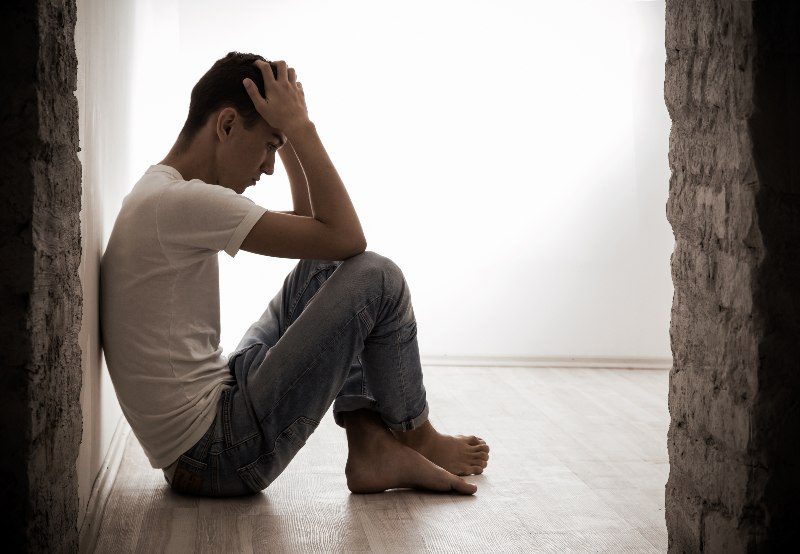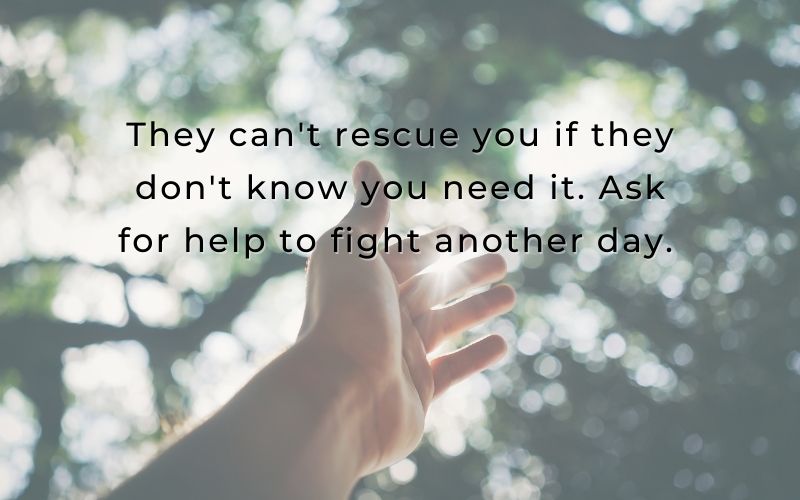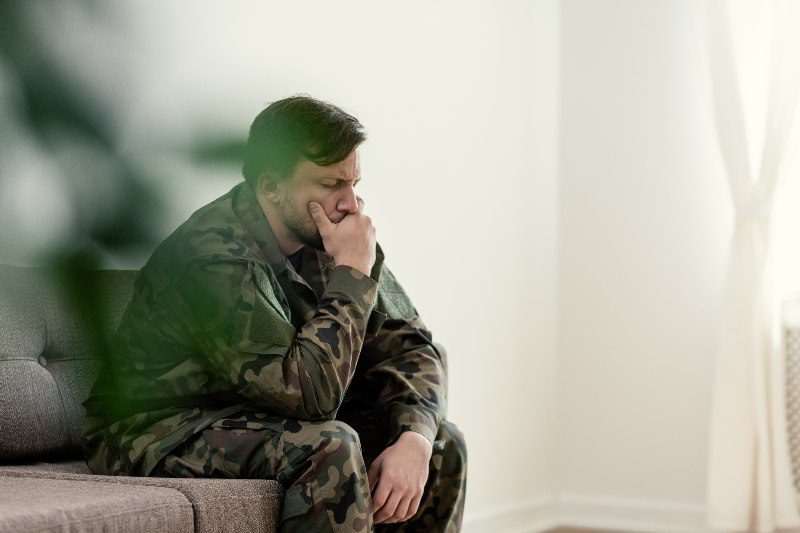How to Cope with the Suicide of a Loved One
By Elizabeth Crain
8/4/2021
Veterans and their families are no strangers to loss, but the most devastating losses are the ones that feel like they could have been prevented. Often, when a loved one takes their life, those close to them feel personally responsible—that if only they had known how hard their loved one was struggling, or if they had only done more to help them, they will still be around.
Grief is difficult to handle under the best of circumstances, but survivor’s guilt can make the pain unbearable.

At Telemedica, we hope that no one has to face these difficult feelings and experiences without help. That’s why we’ve put together this post explaining how to cope with the suicide of a loved one. As navigating through the time after a loss can feel overwhelming, we hope these recommendations will help you find your path to healing.
1. Listen to Your Emotions
How to Help a Family Member with Mental Illness

It’s okay to hurt after someone you care about is gone; this is a natural part of the grieving process, and grief comes with various complicated emotions.
Instead of avoiding, ignoring, or otherwise “bottling up” these feelings, pay attention to them and accept them. They will come and go throughout your journey of healing, and working through them can help you heal.

These emotions may include one or more of the following:
- Shock: Feelings of numbness or detachment from reality are common responses to loss.
- Denial: You may refuse to accept your loved one’s death. This may change over time as you acquire more information.
- Guilt: Feelings of guilt are common, especially when the loss is a suicide. It’s natural to blame yourself, rather than accepting that some things are out of your control.
- Sadness: Memories and reminders of the loved one can trigger sadness, hopelessness, and bitterness.
- Anger: It’s common to feel a sense of abandonment, and a resentment to either the person you’ve lost or the circumstances of that loss. Those emotions often express themselves as anger, and can be directed at any number of points both internal and external.
- Confusion: There will likely be unanswered questions, which may compel you to try and make sense of the situation, even when there’s little that’s logical about the loss.
2. Look After Yourself

Keep in mind, there is no right way to grieve, nor is there a definite timeline for when the pain and emotions will soften.
Every person is different, so take your time, and don’t expect recovery to meet some kind of deadline.
Take note and respect your boundaries by:
Not rushing yourself: Do what is right for you. Do not feel inclined to do something for someone else’s sake. It’s essential to listen to your mind and body at this time and do what is comfortable. For example, if you don’t feel ready to visit the gravesite of your loved one, it’s okay to wait until you are ready.

Grieving in your own way. Some days will be better than others, and this is okay. Healing after the suicide of a loved one is not a linear path. There will be roadblocks that cause emotions to resurface, making you feel like you’ve slipped backward in your healing journey. Whatever happens, be patient with yourself. Instead of feeling frustrated, acknowledge that this is all part of the healing process and give yourself grace.
Taking the time to focus on you. It can feel impossible to make room for yourself when you’re consumed with loss and grief. Carve out time each day to eat well, take a walk, get a healthy amount of sleep, and do other things that constitute healthy self care for you. Just remember that too much of any self care tactic can be counter productive, so keep things in balance.

3. Reach out to Someone You Trust

It isn’t healthy to bottle everything up inside, but it can be difficult to sort through these feelings on your own.
That’s why it helps to talk to someone you trust. Connecting with others can help you feel less isolated, assure you that others share your pain, and remind you that there are people who will always be there for you.
Make sure that you share your feelings with someone who will be supportive, and who will encourage healthy coping habits (and discourage unhealthy ones). If people who meet those standards seem to be in short supply in your life, consider reaching out to a licensed counselor or therapist.

Not only will such a professional offer an optimistic and objective outside perspective, they will have experience and training assisting people through difficult experiences like yours. You may even find that they provide you with the tools needed to heal from emotional wounds you weren’t even aware of before the loss.
And lastly, if you are not ready to talk to people, that’s okay too. You may still find comfort in spending time with close family and friends, even if you don’t talk about the loss, or don’t talk about anything at all. Sometimes, it can help to simply have a shoulder to lean on.
4. Find Resources to Help You Cope

In some groups and cultures, suicide is a stigmatized subject, making it incredibly difficult to find support after the suicide of a loved one.
It can also make it challenging to acknowledge your emotions and authentically communicate those feelings.
Rest assured, there are resources to help you grieve in your own way and feel better supported during this time.
Support Groups
- Alliance of Hope for Suicide Survivors: Nonprofit organization Alliance of Hope aims to offer support resources on survivor experience. Some of their services entail guides on how to cope with suicide, online forums, and consultations with loss professionals.
- American Foundation for Suicide Prevention (AFSP): The AFSP has a local chapter in all 50 states. They connect those who have lost loved ones to suicide and those struggling with suicidal ideation to local support groups and outreach programs.
- VA Office of Survivors Assistance: The VA offers resources for survivors and dependents of deceased Veterans and service members. Some of these resources include bereavement and readjustment counseling.
- Stop Soldier Suicide: Stop Soldier Suicide leads the fight against veteran suicide. They offer support to veterans who are struggling after their time in the service. If you are interested in helping veterans, learn about how you can support the organization.

Don’t Give Up

Finally, it’s important not to let temporary feelings lead you to permanent decisions. It’s not uncommon for those experiencing grief after the suicide of a loved one to consider following in their steps.
If you are experiencing these same feelings, please seek help.
Loss is painful, but there is always hope that things can get better over time. Your life has value, especially to those that love you, and the loss of even a single member of any community is a tragedy.
Just take everything one day at a time; no storm can last forever.
Seek Help Today
We understand life may seem difficult at the moment, but rest assured, it will get easier with time. You are not alone, and you don’t have to face these challenges on your own. And if you are in need of support, please don’t hesitate to contact us. We can point you toward the right resources, and help you access the benefits you need.